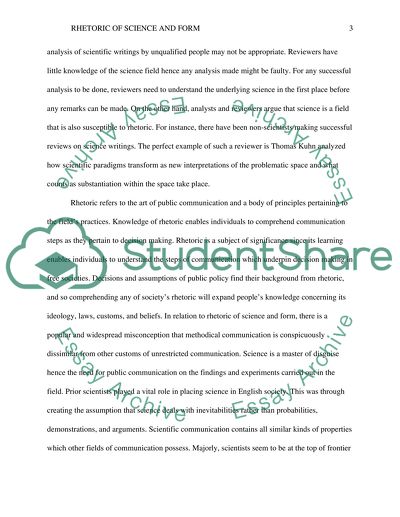Cite this document
(“Research Paper On the RHETORIC of Science (Specifically Addressing the”, n.d.)
Retrieved from https://studentshare.org/english/1402343-research-paper-on-the-rhetoric-of-science
Retrieved from https://studentshare.org/english/1402343-research-paper-on-the-rhetoric-of-science
(Research Paper On the RHETORIC of Science (Specifically Addressing the)
https://studentshare.org/english/1402343-research-paper-on-the-rhetoric-of-science.
https://studentshare.org/english/1402343-research-paper-on-the-rhetoric-of-science.
“Research Paper On the RHETORIC of Science (Specifically Addressing the”, n.d. https://studentshare.org/english/1402343-research-paper-on-the-rhetoric-of-science.


